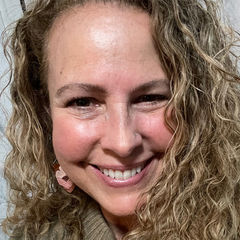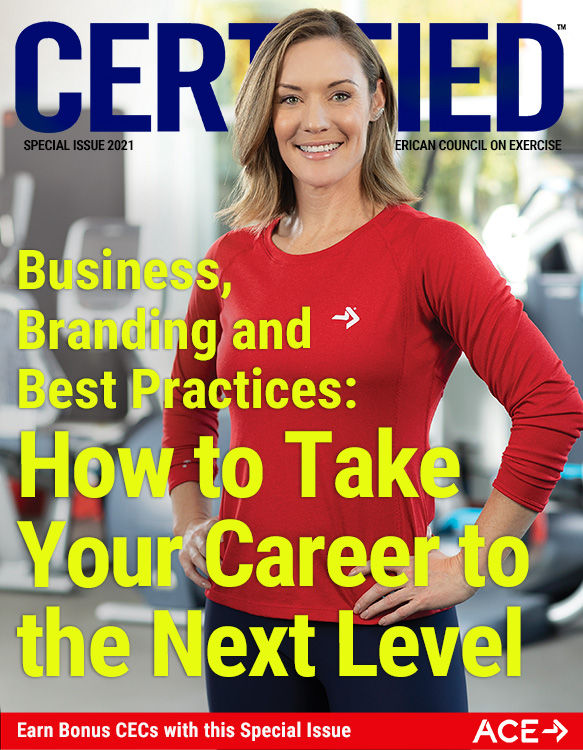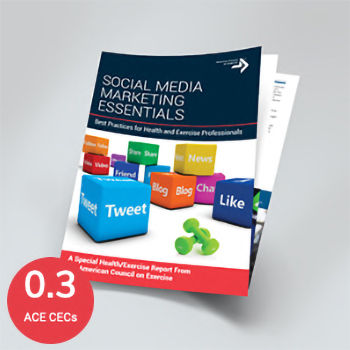
Maybe you have a Facebook group set up for your business, but it’s gone stale. Or maybe you haven’t even started one yet, because, well, who are you to lead a group on the world wide web (can you say, “Imposter Syndrome”?)? Or maybe you’ve got a group that does O.K., but you want more engagement. Whether you’re just starting out as a health and exercise professional or have been at it for a while, now is the time to leverage your business for real success and do what you’ve been called to do—serve. Facebook groups are a great way to get your message out to people who want what you have to share (and might even buy your products and services)
Why Facebook Groups?
While Facebook isn’t the only social media platform, it’s the third-most visited website and second-most downloaded app, with 2.8 billion monthly active users, 1.8 billion of them using Facebook groups. Facebook also owns Instagram, WhatsApp and Messenger. And it’s free, which makes it accessible to everyone with an internet connection and a device—and easy on the bank account for business owners trying to grow organically.
For the purposes of this article, we’re focusing on community Facebook groups—the free group you’re using to build your audience and potential prospects. This is where you’re building brand trust and sharing your message, allowing people to get to know you. The other types of Facebook groups you can start are program-specific groups. For example, if you create a course to sell, you can offer entry into a related Facebook group as a bonus to those who buy it.
“Facebook groups are a great way to create a community of like-minded people that you can serve and get to know,” say Aly Bloom and Katie Patterson, together known as The Sales Sisters. “They’re your ideal clients all in one place, wanting to learn from you and be a part of your community.”
How to Stand Out Among Millions
With 10 million groups on Facebook, how do you make yours stand out?
It starts with your cover and title. “We call this your calling card,” explains Bloom and Patterson, administrators of their Facebook group, Women Entrepreneurs: Success Through Community and The FB Group Growth Academy. “Creating a Facebook group banner that is easy to read and lets the new member know right away what your group is about, a profile pic that shows off your personality, and the name of your group is prime real estate for pushing you up in the search and suggestions, allowing for organic growth.”
Avoid getting too creative or cutesy with your group name and description. Instead use keywords that are easily searchable. And get your face on there, too, so people see the person running the group. This makes it easier for them to identify and connect to you.
Be sure to identify what the group is about and what your focus is when setting up your Facebook group, advises Jennie Jordan, certified health coach. “Be specific on what you name the group. I like to have things that have my name or my official coaching name in it. Something that relates back to you…will help people find your group.”
As a health coach, you are more than just a business. You are a brand, which includes the image or identity that your business projects. It’s important to keep brand recognition at the forefront when planning your Facebook group, recommends Lawrence Biscontini, a virtual wellness and spa host, presenter and author of several wellness and fitness manuals. For example, Biscontini suggests using “a hashtag if appropriate so everyone sees it constantly.”
Placing a hashtag (#) in front of a word or phrase creates a clickable link for people to use to find topics they’re interested in. Facebook users can search for groups on specific topics. Using hashtags increases the chances that your group will be included in search results.
When you post in your group, include hashtags with your posts that are relevant to what your group’s purpose is, as well as hashtags with your group and business names. For example, health coaches might include hashtags that are relevant to health, fitness and wellness (#health, #fitness, #wellness), as well as hashtags relevant to health coaching (#healthcoach), which increases your chances of showing up on someone’s search for health coaches. What’s your business name? Include a hashtag for that, as well.
Also, include a hashtag related to each specific post. If you post about healthy eating, include a hashtag (#healthyeating, #food). If your post is about stress, include a hashtag (#stress, #stressmanagement, #stressrelief, #stressless). You get the idea.
Facebook also has all kinds of tools now for group administrators. Take advantage of them, says Biscontini. “Familiarize yourself with all the options Facebook gives you for promoting, adding and departmentalizing/chaptering your group posts,” he says. “Make your own community rules unique to your group beyond the mere ‘copy and paste’ suggestions that Facebook gives you.”
O.K., I’ve Created My Group. Now What?
Unfortunately, the phrase, “If you build it, they will come” does not apply to Facebook groups. You’ve got to do your work to invite and draw people to you (remember, there are 10 million Facebook groups out there). You must be active in your group and post, post, post!
What you post on depends on the purpose of your group, but not all your posts need to relate to your group’s purpose. People are on social media to be social. They want to get to know you, and you must build trust before you can “sell” to them. You do this through personal posts. How personal you get is up to you but give them at least a glimpse into your life. Let them know that you are real and can relate to them and their struggles. As Robbie Tall, MBA, a business coach from Sydney, Australia, says, “Your group is your house party, so make it how you want to be. Be the host.”
Make service a priority. “We spend time in our groups cultivating relationships so that they feel like they already know, like and trust us when it comes time to sell them a product,” say Bloom and Patterson.
Avoid posting too many generic posts and memes. Get your face on your page to make more of a human connection. Jordan’s repertoire of topics includes health and fitness, but also “cars, my crazy curly hair, my puppy and traveling. I love to go live on all my social media platforms. That’s how I bring people into my community for them to engage with me on a deeper, more intimate level,” she says. “Your members want to hear about you, they want to learn about you, they want to learn from you and they want to understand [what your journey has been]. This is how you build an audience that turns into paying clients.”
Engagement in your group—getting members to interact with you and comment on posts—is what will boost your ratings on Facebook. When Facebook sees that you’re a more popular group, you’ll show up more often in searches.
Jordan increases engagement in her group by doing Facebook Lives, asking members questions and encouraging them to answer during the Live. “I also do challenges and giveaways. This will entice people because they might win something.”
When you do a Live, include a title and hashtags, just like you would any other post, to increase the chances of it being seen.
Another way to organically grow your audience is to join other people’s groups that are based around topics that are similar to yours. While most groups will not allow solicitation (in other words, no shameless self-promotion), you can comment on other members’ posts, offering advice and information. When members see that you know what you’re talking about and have some value to offer them, they’ll check out your profile, which should feature a link to your group.
“When you’re in business, seeking out your ideal future client, Facebook groups can be very effective,” says Tall. “You do, however, have to work within the admin’s rules for the group, which means it’s important to contribute value and support helpful discussion, rather than just poking around, trying to find your next client.”
Here is one of Tall’s mottos: Give in public, sell in private. In other words, have a heart-centered approach to business. Offer as much value as you can in your community Facebook groups. Show your members that you are a real person who understands their struggles. Show your imperfections. Build trust. Make the human connection. Solve some of their problems. Give them just enough to want more. By doing so, you will attract the people who need what you have to offer. When people feel like you’re serving them, they’re more likely to buy from you when you present your offer.





 by
by 





